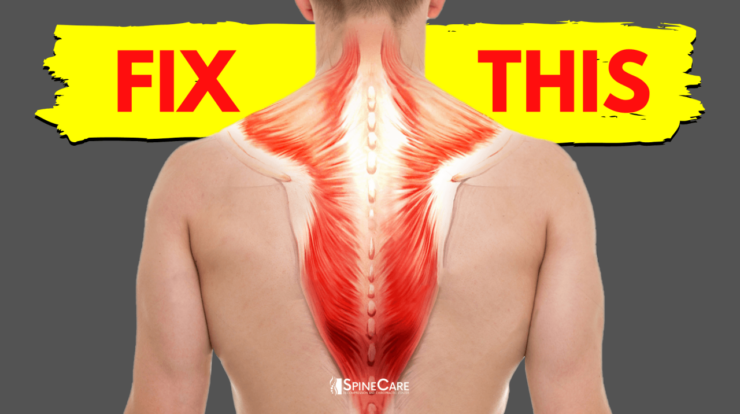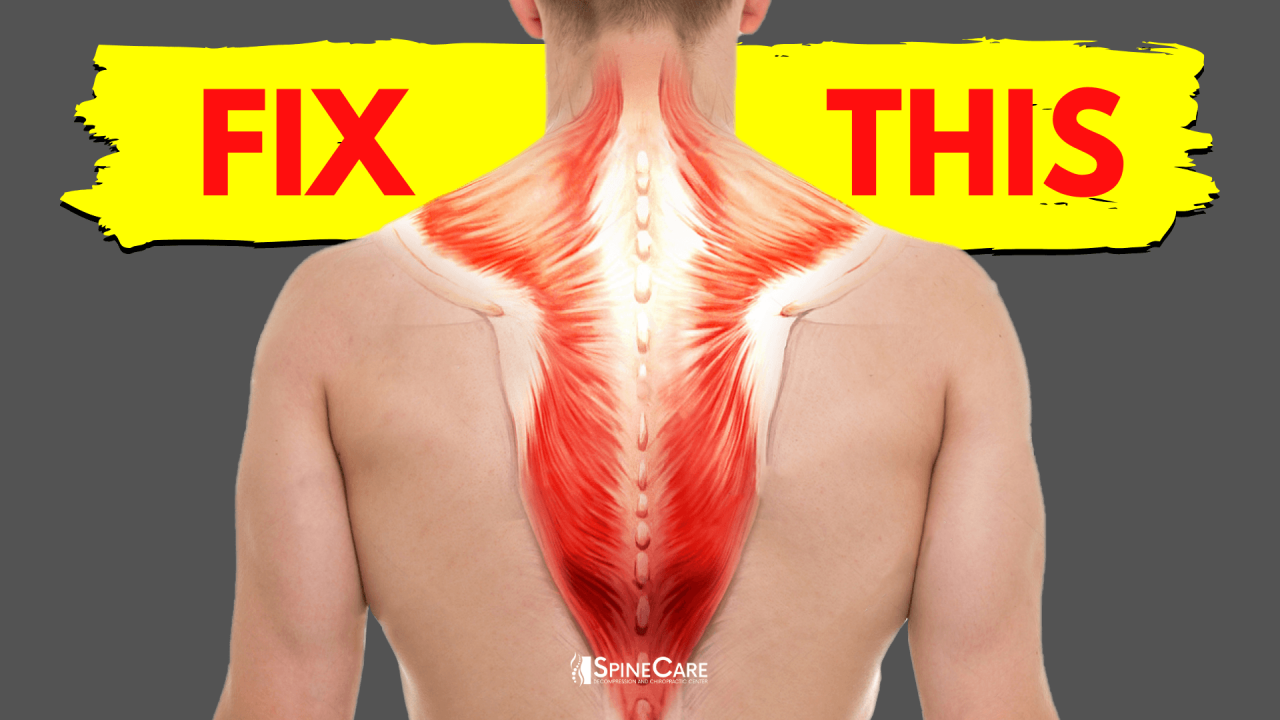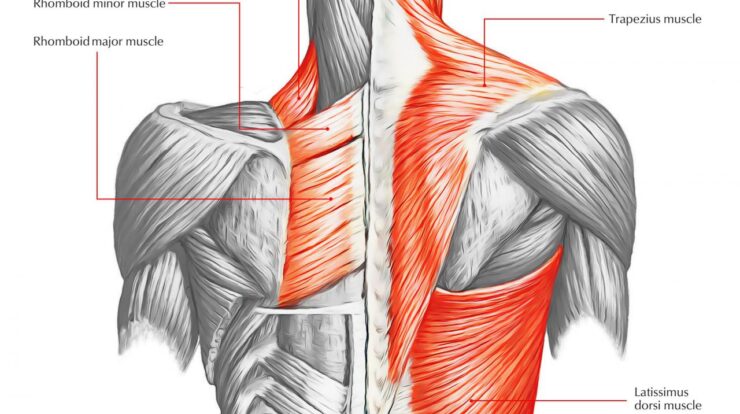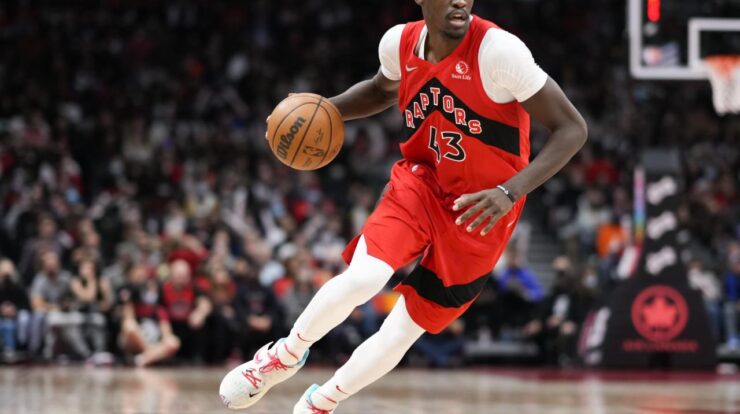
How can stiff and tight muscles result in back pain? This question has plagued individuals for centuries, and its answer lies in the intricate relationship between our musculoskeletal system and overall well-being. Stiffness and tightness in muscles can manifest as debilitating back pain, significantly impacting our daily lives.
Join us as we delve into the causes, mechanisms, and effective strategies for managing this common ailment.
The connection between muscle stiffness and back pain is undeniable. When muscles become stiff and tight, they lose their flexibility and range of motion, leading to imbalances and misalignment in the spine. This can put excessive strain on the back, causing pain and discomfort.
The physiological mechanisms involved are complex, but primarily involve the activation of pain receptors and the release of inflammatory mediators.
Stiff and Tight Muscles as a Contributing Factor to Back Pain

Stiff and tight muscles can significantly contribute to the development of back pain. The intricate interplay between muscle stiffness, tightness, and back pain stems from physiological mechanisms that involve the musculoskeletal system.
When muscles become stiff and tight, they lose their flexibility and range of motion. This reduced mobility can strain the muscles, leading to pain and discomfort. Moreover, tight muscles can compress nerves and blood vessels, further exacerbating pain and hindering proper muscle function.
Common Causes of Stiff and Tight Muscles
Numerous factors can contribute to stiff and tight muscles, including:
- Poor posture: Prolonged sitting or standing with poor posture can lead to muscle imbalances and tightness.
- Lack of physical activity: Sedentary lifestyles can weaken muscles and make them more susceptible to stiffness.
- Overuse: Repetitive or strenuous activities can strain muscles, causing them to become tight and sore.
- Dehydration: Dehydration can reduce muscle elasticity and flexibility.
- Nutritional deficiencies: Certain nutrient deficiencies, such as magnesium and calcium, can contribute to muscle stiffness.
- Age-related changes: As we age, muscles naturally lose some of their elasticity and flexibility.
Impact of Stiff and Tight Muscles on Back Pain, How can stiff and tight muscles result in back pain?
Stiff and tight muscles can manifest as back pain in various ways:
- Muscle spasms: Tight muscles can spasm, causing sudden and intense pain.
- Muscle strain: Overstretched or torn muscles due to stiffness can lead to pain and reduced mobility.
- Nerve compression: Tight muscles can compress nerves in the spine, causing pain, numbness, and tingling.
- Joint pain: Stiff muscles can put excessive strain on joints, leading to pain and discomfort.
- Postural imbalances: Tight muscles can alter posture, causing pain and discomfort in the back and other areas.
Relieving Back Pain Caused by Stiff and Tight Muscles
Effective strategies for relieving back pain caused by stiff and tight muscles include:
- Stretching: Regular stretching can improve muscle flexibility and reduce stiffness.
- Strengthening exercises: Strengthening exercises help improve muscle strength and endurance, reducing the likelihood of stiffness and pain.
- Massage: Massage can help relax tight muscles and relieve pain.
- Heat or cold therapy: Applying heat or cold to sore muscles can reduce pain and stiffness.
- Over-the-counter pain relievers: Nonsteroidal anti-inflammatory drugs (NSAIDs) can help reduce pain and inflammation.
Preventing Back Pain Related to Stiff and Tight Muscles
Proactive measures can help prevent back pain caused by stiff and tight muscles:
- Maintain good posture: Pay attention to your posture while sitting, standing, and sleeping.
- Engage in regular physical activity: Regular exercise helps keep muscles flexible and strong.
- Manage stress: Stress can contribute to muscle tension and stiffness. Find healthy ways to manage stress, such as exercise, yoga, or meditation.
- Stay hydrated: Drink plenty of water throughout the day to prevent dehydration and maintain muscle flexibility.
- Warm up before exercise: Warming up before physical activity helps prepare muscles for exertion and reduces the risk of stiffness.
Closure

Understanding how stiff and tight muscles can result in back pain empowers us to take proactive measures to prevent and manage this condition. By maintaining good posture, engaging in regular physical activity, and managing stress, we can reduce the risk of developing stiff muscles and the associated back pain.
Remember, the key to a pain-free back lies in maintaining muscle flexibility and overall well-being.
Clarifying Questions: How Can Stiff And Tight Muscles Result In Back Pain?
What are the common causes of stiff and tight muscles?
Celebrate the special bond between mothers and children this Mother’s Day. Whether you’re near or far, send warm wishes with ” Happy Mother’s Day to You Too ” or ” Happy Mother’s Day Sis .” Express your gratitude and love with heartfelt messages like ” Happy Mother’s Day Sis ” and ” Happy Mother’s Day Sis .” Don’t forget to share ” Happy Mothers Day Wishes Mom ” to show your appreciation for all she does.
Prolonged sitting or standing, poor posture, lack of physical activity, and dehydration are common causes of stiff and tight muscles.
How can I relieve back pain caused by stiff and tight muscles?
Stretching, strengthening exercises, massage, and heat therapy can effectively relieve back pain caused by stiff and tight muscles.
What are some preventive measures for back pain related to stiff and tight muscles?
In a heartwarming tribute to motherhood, communities across the country are expressing their gratitude with heartfelt messages. Happy Mother’s Day to You Too has become a popular expression of love and appreciation, while Happy Mother’s Day Sis conveys a special bond between siblings.
The message Happy Mother’s Day Sis further emphasizes the unique connection between sisters. Happy Mother’s Day Sis echoes this sentiment, extending love and well wishes to all mothers and sisters.
Maintaining good posture, engaging in regular physical activity, managing stress, and staying hydrated can help prevent back pain related to stiff and tight muscles.





